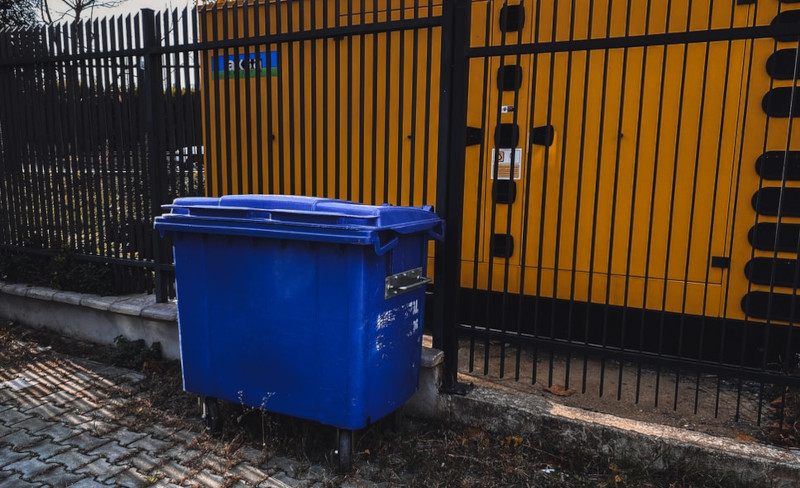Keeping Waste Management Environmentally Friendly All Year Round

Taking out the garbage is nobody's favorite chore at the best of times; add in snow, ice, or extreme heat, and you may find yourself putting it off till late at night or skipping it altogether. Without a good routine, trash may pile up in your kitchen, garage, or shed. If you normally recycle or compost, bad weather or changing seasons can make it easy to let those habits slide. Here are some tips to make waste management simple and environmentally friendly every week of the year.
Know Your Options
If managing your waste is frustrating you every week, it may be worthwhile researching what other options are available. Does your city offer weekly pickup, or do you have to take it to a dump? Some regions may limit each household to a certain number of bins or bags. How much does it cost to haul it all to a waste management facility once in a while? Some areas have waste management companies that will even pick up your waste from the back door, saving you a trek down an icy driveway in the winter.
Choose a Service that Works for You
To set yourself up for sustainability and success, choose a service that works for you. Consider how much waste your household generates each week and what kinds. Do you have a lot of paper recycling? Are you composting? This may change during different seasons; for example, many people have a lot of yard waste for a few months in the fall but not the rest of the year. You need a method of waste management that combines affordability and convenience. Make sure that whatever you choose can accommodate the garbage produced by your household routine, even during seasons when you may have more than usual.
Buy the Right Supplies
Once you've decided how garbage will be removed from your property, make sure you have the necessary supplies to keep your garbage contained and easy to manage. Buy bins for your kitchen or bathroom that are big enough for your daily needs and easy to empty regularly. If you are storing garbage in bins in a garage or shed, make sure to buy bins that have been approved by your pickup or disposal service. They should be big enough to accommodate your needs but not too bulky or heavy to take to the curb, car, or shed when they are full. If you are pulling bins over a gravel driveway or snow, get bins with sturdy wheels. Durable bags and easy-to-clean bins will make your weekly routine easier.
Choose an Easy Location
Choose the location of your garbage storage carefully. If you often experience heavy snow, wind, or rain, you may want it in a garage or shed quite close to the house. Leave room in the garage to get the bins out easily without having to move a car. If you are more worried about odors or animals, consider keeping it away from the house. If you get a lot of snow in the winter, keep it somewhere with an easily cleared path so that you aren't wading through snow every day or stuck with garbage building up in the house.
Set a Routine
Once you've set up the storage and disposal of your garbage, create a routine so that it isn't a constant hassle. This might involve setting an alarm to take it out each week or making sure to do it as you leave for work in the morning. This way, you will not be stuck taking it out in the middle of the night or missing weekly pickups. In the summer, do it in the evening when it's cool. In the winter, consider doing it on your way out the door or when you first get home from work so that you're already bundled up against the cold. Use a path that's been shoveled or salted to avoid any slips or falls.
Keep Your Routine Sustainable
To keep your waste management environmentally friendly, research what your region requires for recycling and composting. You may need to sort recycling a certain way to make sure it's picked up. Consider having separate recycling bins in your kitchen so that you can sort recycling right away. If you frequently have yard waste, find out whether it can be added to compost, should be bagged separately, or must be taken to a dump. There may be changes seasonally, to accommodate snow or leaves, so keep an eye on your city's website, app, or waste management calendar.
Sheltered Location
Keep your garbage somewhere it will be sheltered from changing weather and animals. This may mean keeping it in the garage to avoid snow and wind. If you do not have a garage, consider putting bins in a shed or next to the house, where they will be protected from the worst of the weather. Buy bins with heavy-duty lids that stay on securely or can be latched shut. Keeping compost in a shed or garage will help keep it contained and away from animals.
Don't Overfill
Some types of recycling, particularly paper, cardboard, or loose cans, can easily become a mess if there are heavy winds. Wherever you store your garbage, buy enough bins to avoid overflow. Consider placing lighter items at the bottom of the bin, weighed down by heavier items like glass. This will help keep your recycling easy to manage and sort.

Buy Animal Proof Bins
Many people give up on composting because they worry about animals getting into the bin. However, there are many bins available that keep animals out, using a heavy lid, handles that lock in place, or a strong latch system. This will allow you to keep composting all year without a mess or fear of attracting animals.
Keep Compost Clean
If you're worried about the mess of composting, buy a bin that is small enough to clean out regularly. Use a hose to rinse it out each week, or line the bottom with newspaper. Consider lining your indoor compost bin with a paper towel to keep the bin free from spills or stickiness. Take your compost bin out regularly to avoid strong odors.
Don't Let Weather Get In Your Way
If dealing with garbage every week is a hassle, do some simple research to simplify the process. Weather and changing seasons should not stop you from maintaining a simple, environmentally friendly routine. Durable bins with wheels, a sheltered location for storage, and a simple weekly schedule are all part of creating a clean, easy-to-maintain waste management process.